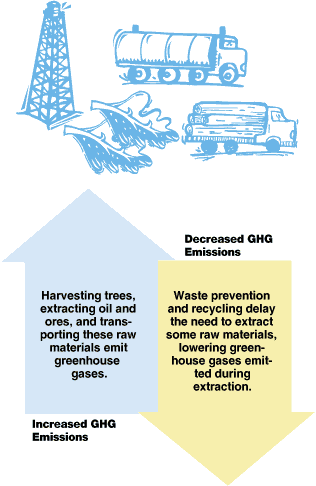
Waste Management Global Warming. WasteWise also provides climate-specific technical assistance to help you identify your waste-related greenhouse gas reductions. Up to the present time the majority of the focus for waste management and climate change has been on emissions and mitigation. WasteWise provides technical assistance for waste prevention recycling and buying recycled all of which contribute to lowering GHG emissions. Proper e-waste management can help mitigate global warming.

In Defense of Science Global Warming is Not an Opinion ISWA President Antonis Mavropoulos explains why ISWA and the waste management community will not stay neutral towards the efforts to deny or downplay climate change. Worm farming is the process of converting you organic waste. How representative is global warming as an indicator for environmental performance of waste management. Waste hierarchy referring to the 3Rs rule Reduce Reuse and Recycle waste prevention and minimisation being the. We have to separate waste at home. Global warming is a phenomenon of climate change characterized by a general increase in average temperatures of the Earth which modifies the weather balances and ecosystems for a long time.
It is directly linked to the increase of greenhouse gases in our atmosphere worsening the greenhouse effect.
WasteWise uses the WAste Reduction Model WARM to calculate the GHG reductions associated with partners recycling. 3 6 Considering the impact of waste management on climate change and global. Global warming is a phenomenon of climate change characterized by a general increase in average temperatures of the Earth which modifies the weather balances and ecosystems for a long time. Food Industry Waste Managment food waste Recycling. Calculation approach A carbon factor was calculated for each of the three waste management strategies to assess and compare their climate change impact. It is directly linked to the increase of greenhouse gases in our atmosphere worsening the greenhouse effect.